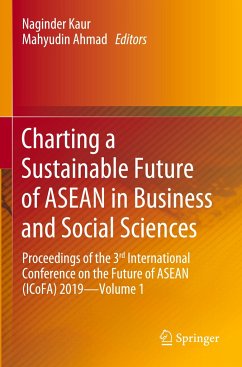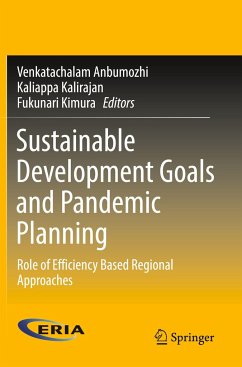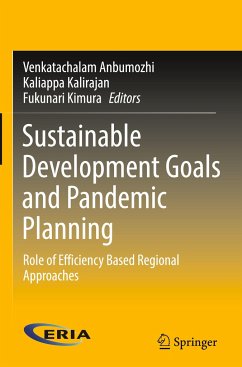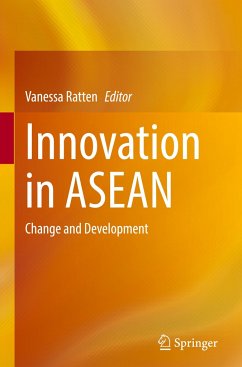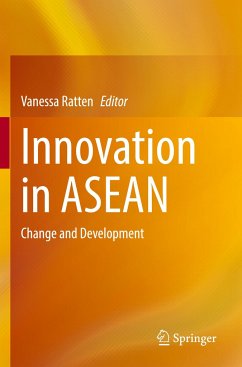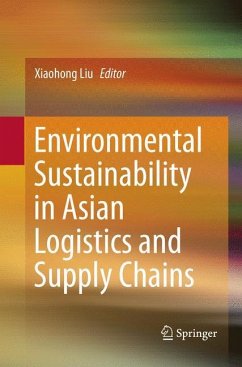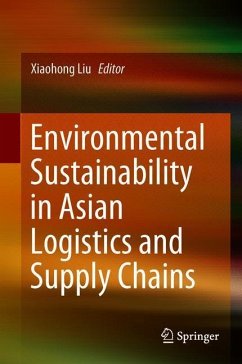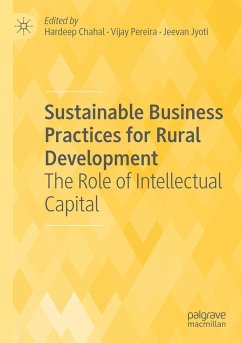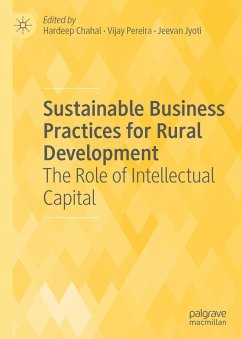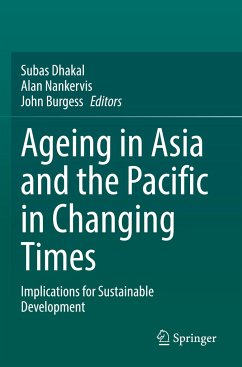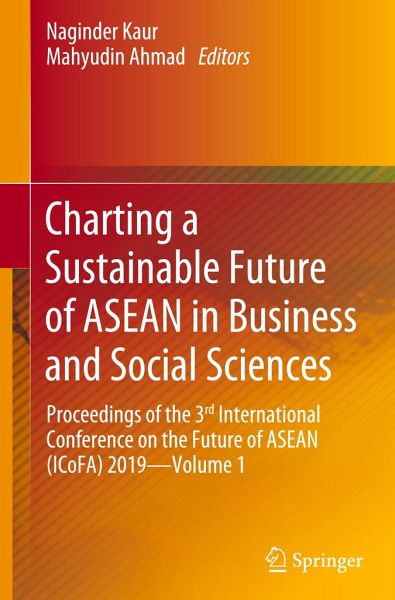
Charting a Sustainable Future of ASEAN in Business and Social Sciences
Proceedings of the 3¿¿ International Conference on the Future of ASEAN (ICoFA) 2019-Volume 1
Herausgegeben: Kaur, Naginder; Ahmad, Mahyudin

PAYBACK Punkte
56 °P sammeln!
This volume showcases selected conference papers addressing the sustainable future of ASEAN from the perspectives of business and social science disciplines. In addressing the 17 Sustainable Developments Goals (SDGs) envisioned by the United Nations in the domains of environment, health and well-being, posing potential means of reducing inequalities globally, the authors target specific issues and challenges confronting the fast-growing region of ASEAN and present suggestions for co-operation and commitment from governments, non-governmental organisations (NGOs) and society at large, in line w...
This volume showcases selected conference papers addressing the sustainable future of ASEAN from the perspectives of business and social science disciplines. In addressing the 17 Sustainable Developments Goals (SDGs) envisioned by the United Nations in the domains of environment, health and well-being, posing potential means of reducing inequalities globally, the authors target specific issues and challenges confronting the fast-growing region of ASEAN and present suggestions for co-operation and commitment from governments, non-governmental organisations (NGOs) and society at large, in line with the ASEAN Vision 2020. Papers are selected from the 3rd International Conference on the Future of ASEAN (ICoFA) 2019, organised by Universiti Teknologi MARA in Malaysia, whose conference theme "Charting the Sustainable Future of ASEAN" enables intellectual discourse on sustainability issues from business and the social sciences, as well as science and technology. The selection of papers is published in two volumes, comprising scholarly and practical insights into sustainability in ASEAN. This first volume of papers from business and social science scholars will be of interest to researchers and policymakers interested in sustainability developments in the ASEAN region.





